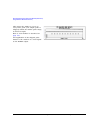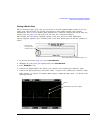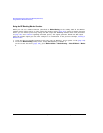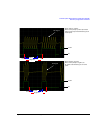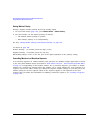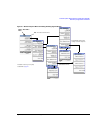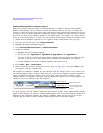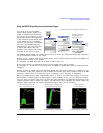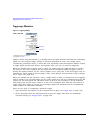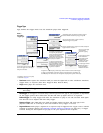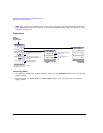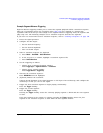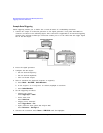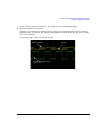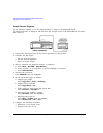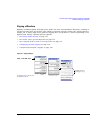
164 Agilent N5161A/62A/81A/82A/83A MXG Signal Generators User’s Guide
Basic Digital Operation (Option 651/652/654) Preliminary
Triggering a Waveform Preliminary
Triggering a Waveform
Figure 8-7 Triggering Softkeys
Triggers control data transmission by controlling when the signal generator transmits the modulating
signal. You can configure trigger settings so that data transmission occurs once (Single mode),
continuously (Continuous mode), or starts and stops repeatedly (Gated and Segment Advance modes).
A trigger signal contains both positive and negative states; you can use either for triggering.
When you initially select a trigger mode or when you change from one triggering mode to another,
you may lose the carrier signal at the RF output until the modulating signal is triggered. This is
because the signal generator sets the I and Q signals to zero volts prior to the first trigger event. To
maintain the carrier signal at the RF output, create a data pattern with the initial I and Q voltages
set to values other than zero.
When you initially turn the Arb ON or select a trigger mode or when you change from one triggering
mode to another, you may temporarily lose the carrier signal for a few tens of milliseconds at the RF
output. The Arb will present the idle IQrms value of the next Arb waveform to the IQ modulator.
This ensures that the RF carrier output is at the correct amplitude level while the Arb waits for a
trigger. When that trigger is received, the Arb begins playing the waveform and the modulated RF
carrier exhibits no undesirable transients.
There are two parts to configuring a waveform trigger:
• Type determines the behavior of the waveform when it plays (see Trigger Type on page 165).
• Source determines how the signal generator receives the trigger that starts the modulating
waveform playing (see Trigger Source on page 166).
Mode > Dual ARB
page 165
page 166
For details on each key, use key help
as described on page 42.



